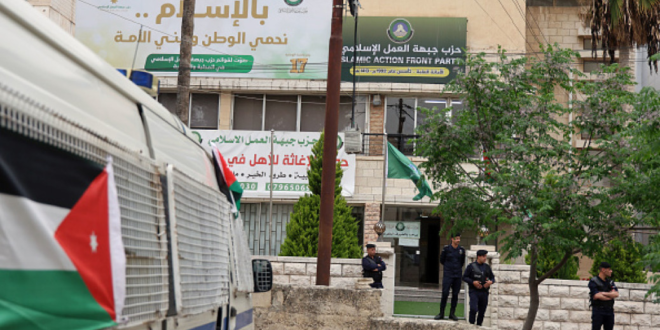The Jordanian government has called on all individuals holding assets belonging to the now-dissolved Muslim Brotherhood Association to report them to the Ministry of Social Development within one month, or face legal consequences.
In a statement issued on Wednesday, Barq Al-Damour, Secretary-General of the ministry and head of the committee tasked with overseeing the group’s dissolution, said the directive applies to anyone in possession of movable or immovable assets once owned by the Muslim Brotherhood or registered in its name, including property, funds, and other holdings.
Individuals are required to submit all supporting documents and records to the ministry within the specified timeframe “under penalty of legal liability”, Al-Domour said. The move is based on the Court of Cassation ruling No. 2019/8392, issued in February 2020, which ruled that the association, founded in 1946, was legally dissolved as of June 16, 1953.
This latest step marks a new phase in Jordan’s broader effort to dismantle the remnants of the Brotherhood’s legal, political, and financial footprint in the country.
On 23 April, Interior Minister Mazen Al-Faraya formally declared the Muslim Brotherhood an illegal entity, ordering an immediate ban on all its activities and the confiscation of its assets. Affiliation with or promotion of the group’s ideology was also criminalised.
Just days earlier, Jordan’s intelligence agency announced it had arrested 16 individuals allegedly affiliated with the Brotherhood and accused them of plotting attacks involving rockets and drones. The suspects were said to have received training and financing in Lebanon. One of the plots reportedly involved the concealment of a missile ready for use.
Security forces, acting on orders from the public prosecutor, raided Brotherhood offices across the kingdom in late April, seizing documents and searching for evidence, with officials alleging that some materials had already been destroyed in an effort to conceal information.
The Brotherhood has denied organisational involvement in any sabotage activities, though it acknowledged that some members may have independently engaged in arms smuggling to the occupied West Bank.
The group, one of the oldest and most influential Islamist movements in the Arab world, maintains that it renounced violence decades ago and operates through peaceful means.
The crackdown has also extended to the group’s political arm, the Islamic Action Front (IAF), which became the largest opposition bloc in parliament after last September’s elections.
IAF offices were among those raided, raising speculation that the party could also face dissolution if organisational links to the banned Brotherhood are confirmed.
IAF leader Wael Saqqa has denied such links, insisting the party is an independent political entity that abides by Jordanian law.
 Eurasia Press & News
Eurasia Press & News



